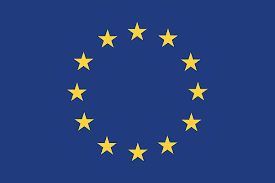ALTERNATIVE project builds platform for detecting the cardiotoxicity of chemicals
Turin, 20 October 2021. On 1st October, the three-year Horizon 2020 project ALTERNATIVE (environmentAL Toxicity chEmical mixtuRes through aN innovative platform based on aged cardiac tissue model) started its work. The project coordinated by Politecnico di Torino is addressing the increasing health risks of pollutants in the environment.
People are continuously exposed to a huge amount and variety of potentially toxic chemicals present in the surrounding environment, such as pesticides or drug traces in water, soil, air and living organisms. The combined action of pollutants can increase the risk of toxic effects. At the same time, a growing occurrence of cardiovascular diseases has been observed. These diseases have been among the top-ranked causes of death in mature and aged populations for the last 30 years. Scientists think that this increase may be related to the environmental exposure to exogenous toxic chemicals.
ALTERNATIVE will produce an innovative in-vitro platform able to evaluate the cardiotoxicity of single chemicals or a mixture of chemical components. The platform is based on a three-dimensional model of bioengineered human functional cardiac tissue cultured in a bioreactor, together with an omics analysis system for understanding the response of the model to different substances. Artificial Intelligence algorithms will be implemented to estimate the risk. Additionally, the project will develop a model of aged cardiac tissue to evaluate the impact of toxic substances on particularly vulnerable parts of the population, like the elderly and people with chronic diseases. The model will be initially validated on existing toxicity data, and in the next step it will be used to make predictions on chemical and pharmaceutical substances.
The project also aims at creating impact on European regulation. The European bodies responsible for regulating chemicals such as fertilizers or detergents, industrial chemicals or pharmaceutical products are seeking an exhaustive evaluation of the toxicity of single substances or mixtures. ALTERNATIVE will offer a new method for gaining the required information on cardiotoxicity, allowing to obtain more reliable results with a viable technology which will have a lower impact on the environment and minimize ethical concerns through the reduction of animal testing,
The project is part of the European Green Deal actions aimed ‘towards a zero-pollution ambition for a toxic free environment’. It will help in the implementation of the EU’s new chemicals strategy for sustainability, aiming at better protection of both humans and the environment against hazardous chemicals. ALTERNATIVE will particularly increase awareness of cardiovascular risks related to pollutants, and it aims to support to the regulatory framework for the production and disposal of chemicals and pharmaceuticals.

ALTERNATIVE project team at the kick-off meeting in Turin in October
The project consortium combines multidisciplinary expertise in areas like in-silico systems, machine-learning algorithms, toxicology, epidemiology, and regulatory affairs. The ALTERNATIVE project is performed by an international consortium of 11 organisations with complementary capabilities:
- Politecnico di Torino, Italy, project coordinator
- SCIENSANO, Belgium
- CST Ltd, Bulgaria
- Elvesys SAS, France
- CONSIGLIO NAZIONALE DELLE RICERCHE, Italy
- Fundació EURECAT, Spain
- Eurescom GmbH, Germany
- Istituto di Ricerche Farmacologiche Mario Negri, Italy
- IVTech, Italy
- Utrecht University, Netherlands
- Medical University Innsbruck, Austria
 Acknowledgment
Acknowledgment
This project has received funding from the European Union’s Horizon 2020 research and innovation programme under grant agreement no. 101037090.




